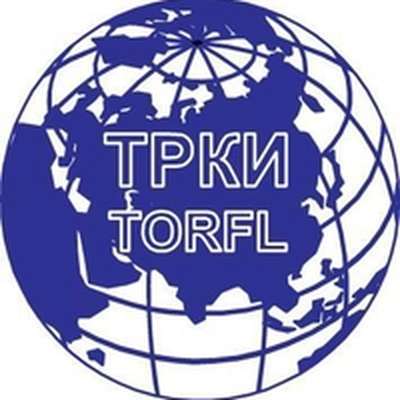
The finalists of the International Online Olympiad in Russian as a Foreign Language not only will receive special prizes and gifts, but also the opportunity to take the international exam in Russian as a foreign language (https://testingcenter.spbu.ru/ru/ekzameny/russia/trki.html) free of charge in one of the 80 Russian Language Testing Centres of St Petersburg University across the globe. How can you prepare for the test? And how can you help your students to prepare for the test?
Unfortunately, there is no one single textbook that answers to all the questions that the TORFL test-takers and teachers may have. But do not despair, dear friends! There are many Russian-language textbooks that will help you feel confident while taking the test and show your best results.
What are the best TORFL-I (B1) books and study guides? We recommend the following textbooks written by TORFL prep experts.
1. Russian language: First steps – Russkij yazyk: Pervye shagi: Textbook, part 3, by Lubov Belikova, Tatiana Shutova and Svetlana Stepanova. The way to Russia – Doroga v Rossiyu:Textbook, part 3, by Valentina Antonova and Maya Nakhabina
These textbooks are parts of Russian as a foreign language course pack series. They build upon knowledge, skills and competences acquired previously by studying part 1 and part 2 of the respective course packs. Part 1 is suitable for learners at A1 level; Part 2 - for A2-level learners, and Part 3 - for B1 learners. The authors use the structured, systemic approach to language learning, providing learners with a coherent strategy and necessary learning tools for developing language skills and communicative competences. These textbooks are suitable for long-term Russian as a foreign language courses in Russia and overseas, as well as for self-study.
2. Let’s go! – Poyekhali! Textbook 2.2 by Stanislav Chernyshov and Alla Chernyshova
This is one of the most popular choices for studying Russian as a foreign language worldwide. Despite the fact that this textbook is the second part of a Russian language course for adults, it can be successfully used on its own. This textbook is more suitable for studying in Russia, but it can also be used for supplementing the main coursebook outside of Russia. Most learners love it because it offers many interesting topics and engaging activities.
3. We live and study in Russia - Zhivem i uchimsya v Rossii by Tatiana Kapitonova
This textbook offers study material for developing listening, reading comprehension and speaking skills. It is often recommended as a preparation book for TORFL because the structure and content of the tasks are easily adaptable to the TORFL exam format.
4. Russian language: Five elements – Russkij yazyk: 5 elementov: Textbook, part 3, by Tatiana Esmantova
The main target audience of this textbook is speakers of European languages (particularly English and German). The textbook successfully combines the interactive communicative method with thorough study and practice of Russian grammar. It can be used either as the main coursebook, or as a supplementary grammar reference book.
5. Let’s Improve Our Russian by Natalia Volkova and Del Philips
This textbook is specifically designed to help English speakers studying Russian, as it has a lot of English explanations, definitions, and examples of some of the most difficult parts of Russian grammar. It is suitable for self-study. The textbook series is in three volumes. Volume 1 offers ample supply of learning materials to prepare for the B1 level exam (TORFL-I), while Parts 2 and 3 will be more useful for developing Russian language skills at upper-intermediate and advanced levels.
6. In the world of news – V mire novostei. Textbook by Larisa Moskvitina
This textbook series is aimed at building vocabulary and developing listening skills, reading comprehension skills, as well as writing and speaking skills in the context of mass media. The target audience is learners of Russian at B1 level or higher. These textbooks are not intended for self-study. They are regularly updated and reprinted; and teachers always prefer the latest edition, since the news topics - the main theme of the book - quickly become outdated.
7. What did you say? – Chto vy skazali? by Irina Odintsova
This textbook is most often used as supplementary learning material alongside the main coursebook. It contains a large number of interactive and communicative speaking tasks. This enables learners to expand their vocabulary and improve their speaking skills. The textbook may also be used at the higher levels – for revision.
We hope our recommendations will help you select the best book to prepare for the exam well and obtain a high score.